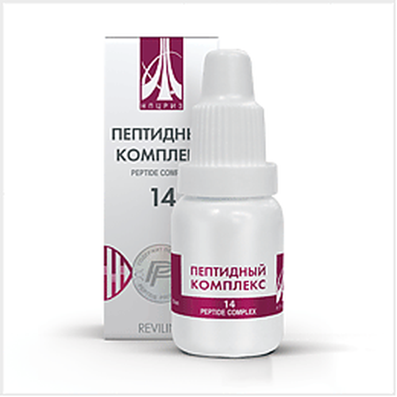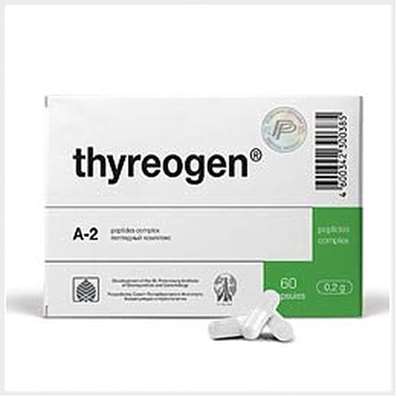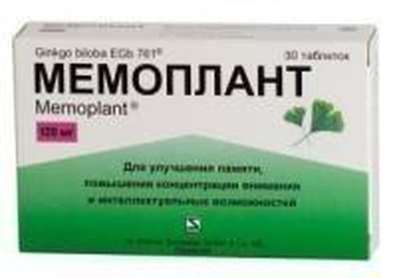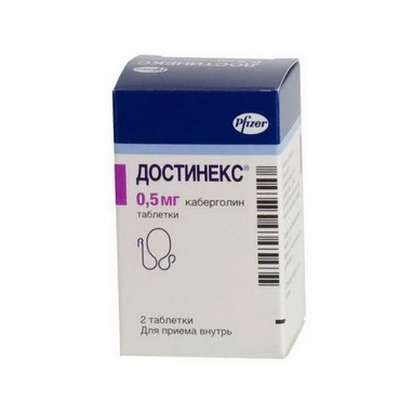Instruction for use: Dalteparin sodium
I want this, give me price
Trade name of the drug – Fragmin
The Latin name of the substance Dalteparin sodium
Dalteparinum natrium (genus. Dalteparini natrii)
Chemical name
The sodium salt of depolymerized heparin with an average molecular weight of about 5000 D; Low molecular weight heparin
Pharmacological group:
Anticoagulants
The nosological classification (ICD-10)
I20.0 Unstable angina: heberden disease; Angina pectoris; The attack of angina pectoris; recurrent angina; Spontaneous angina; Stable angina pectoris; Angina rest; Angina progressing; Angina mixed; Angina spontaneous; stable angina; Chronic stable angina; Angina Syndrome X
I21 Acute myocardial infarction: Myocardial infarction in the acute phase; Acute Myocardial Infarction; Myocardial infarction with pathologic Q wave and without; Myocardial infarction complicated by cardiogenic shock; Infarction left ventricular; Transmural myocardial infarction; Myocardial infarction netransmuralny (subendocardial); Netransmuralny myocardial infarction; Subendocardial myocardial infarction; The acute phase of myocardial infarction; Acute myocardial infarction;Sub-acute phase of myocardial infarction; Subacute phase of myocardial infarction; Thrombosis of the coronary arteries (the arteries); Threatened myocardial infarction; Myocardial infarction without Q wave
I80 Phlebitis and thrombophlebitis: Diseases of peripheral vessels; Inflammation of superficial veins; Inflammatory diseases of veins; Deep venous thrombophlebitis; The disease of veins; Disease of the veins of the lower extremities; Diseases of peripheral vessels; Migrating phlebitis; Insufficiency of veins of lower extremities; Exacerbation of chronic thrombophlebitis; Acute thrombophlebitis; Acute thrombophlebitis of superficial veins; Periphlebitis; Periflebit surface; Superficial inflammation of veins; Surface thrombophlebitis; Surface phlebitis; Thrombophlebitis; Deep vein thrombophlebitis; Thrombophlebitis superficial; Phlebitis; Phlebitis of deep veins; Phlebitis of superficial veins; Phlebopathy; Chronic thrombophlebitis; Endophlebitis
I82 Embolism and thrombosis of other veins: Recurrent venous thrombosis; Postoperative thrombosis; Venous thrombosis; Acute venous thromboembolism; Recurrent vein thrombosis; Venous thrombosis; Thrombosis of veins of internal organs; Venous thrombosis; Deep vein thrombosis; Thrombosis of blood vessels; Vascular thrombosis; Thrombosis of veins; Deep vein thrombosis; Thromboembolic diseases; Thromboembolism of veins; Severe venous thrombosis; Embolism; Embolism of veins; Thromboembolic complications
Z100 * CLASS XXII Surgical practice: Abdominal surgery; adenomectomy; Amputation; Coronary angioplasty; Angioplasty of the carotid arteries; Antiseptic skin treatment for wounds; Antiseptic Hand; Appendectomy; atherectomy; Balloon coronary angioplasty; Vaginal hysterectomy; The coronary bypass; Interventions in the vagina and cervix; Interventions on the bladder; Intervention in the mouth; Restoration and reconstructive surgery; Hand hygiene of medical personnel; Gynecologic surgery; Gynecological intervention; Gynecological surgery; Hypovolemic shock during operations; Disinfection of purulent wounds; Disinfection of wounds edges; Diagnostic intervention; Diagnostic procedures; Cervical Diathermocoagulation; Long-surgery; Replacing the fistula catheters; Infection in orthopedic surgery; Artificial heart valve; cystectomy; Short-term outpatient surgery; Short-term operation; Short surgical procedures; Krikotireotomiya; Blood loss during surgery; Bleeding during surgery and in the postoperative period; Kuldotsentez; laser photocoagulation; laser coagulation; retinal laser coagulation; Laparoscopy; Laparoscopy in Gynecology; CSF fistula; Small gynecological operations; Small surgical procedures; Mastectomy and subsequent plastic; mediastinotomy; Microsurgical operations on the ear; Mukogingivalnye operation; suturing; Minor surgery; neurosurgical operation; Immobilization of the eyeball in ophthalmic surgery; testectomy; pancreatectomy; Perikardektomiya; The period of rehabilitation after surgery; The period of convalescence after surgery; Percutaneous transluminal coronary angioplasty; Pleural thoracentesis; Pneumonia postoperative and posttraumatic; Preparation for surgical procedures; Preparation for surgery; Preparation of the surgeon's hands before surgery; Preparation of the colon for surgical procedures; Postoperative aspiration pneumonia in neurosurgical and thoracic surgery; Postoperative nausea; Postoperative bleeding; postoperative granuloma; postoperative shock; The early postoperative period; myocardial revascularization; Radiectomy; gastric Resection; bowel resection; uterine Resection; liver Resection; enterectomy; Resection of part of the stomach; Reocclusion of the operated vessel; Bonding tissues during surgical procedures; Removal of sutures; Condition after eye surgery; Condition after surgery; Condition after surgery in the nasal cavity; Condition after gastrectomy; Status after resection of the small intestine; Condition after tonsillectomy; Condition after removal of the duodenum; Condition after phlebectomy; Vascular surgery; Splenectomy; Sterilization of surgical instruments; Sterilization of surgical instruments; sternotomy; Dental surgery; Dental intervention in periodontal tissues; strumectomy; Tonsillectomy; Thoracic surgery; Thoracic surgery; total gastrectomy; Transdermal intravascular coronary angioplasty; Transurethral resection; Turbinektomiya; Removal of a tooth; cataract surgery; Removal of cysts; tonsillectomy; Removal of fibroids; Removing the mobile primary teeth; Removing polyps; Removing broken tooth; Removal of the uterus body; Removal of sutures; Fistula likvoroprovodyaschih ways; Frontoetmoidogaymorotomiya; Surgical infection; Surgical treatment of chronic limb ulcers; Surgery; The surgery in the anal area; The surgery on the colon; Surgical practice; The surgical procedure; Surgical interventions; Surgery on the gastrointestinal tract; Surgical procedures on the urinary tract; Surgical procedures on the urinary system; Surgical intervention of the genitourinary system; Surgical procedures on the heart; Surgical manipulation; surgery; Surgery on the veins; Surgical intervention; Vascular surgery; Surgical treatment of thrombosis; Surgery; cholecystectomy; Partial gastric resection; hysterectomy; Percutaneous transluminal coronary angioplasty; Percutaneous transluminal angioplasty; Coronary artery bypass; tooth Extirpation; Extirpation of milk teeth; pulpectomy; pulsative cardiopulmonary bypass; tooth Extraction; teeth Extraction; cataract extraction; Electrocoagulation; endourological intervention; episiotomy; Etmoidotomiya; Complications after tooth extraction
CAS code
9041-08-1
Characteristics of substance Dalteparin sodium
Low molecular weight heparin obtained by controlled depolymerization (with nitrous acid) of sodium heparin from the mucous membrane of the small intestine of pigs followed by chromatographic purification. It is a sulfated polysaccharide chain (oligosaccharides contain the residues of 2,5-anhydro-D-mannitol as terminal groups).
Pharmacology
Mode of action - Anticoagulant, antithrombotic.
It has a direct anticoagulant effect. It binds to antithrombin III and enhances its inhibitory effect on the activity of predominantly coagulation factor Xa. To a lesser extent, decreases the activity of factor IIa (thrombin), because Polysaccharide chains necessary to inhibit thrombin length (containing at least 18 oligosaccharides) are found only in 25-50% of low molecular weight heparin molecules. The ratio of anti-factor and anti-IIa-factor activity is 2.2: 1 (for heparin 1: 1), the antithrombotic effect clearly correlates with the suppression of factor Xa activity. It weakly binds to endothelial cells and, as a result, slightly changes the metabolism of lipids and the function of platelets. Does not cause significant changes in platelet aggregation, fibrinolysis, platelet factor 4 activity, thrombin and prothrombin time, APTTV. To a small extent stimulates the isolation and lipolytic activity of tissue lipase, slightly increases the level of triglycerides and free fatty acids in blood plasma.
The efficacy in the treatment of disseminated intravascular coagulation (mono- or combination therapy) has been shown to reduce the risk of left ventricular thrombosis in acute myocardial infarction and deep vein thrombosis in ischemic stroke, to prevent recurrent thromboembolism in patients with contraindications to the use of indirect anticoagulants and heparin , As well as for the prevention of thrombosis in the prosthetics of the hip joint.
Bioavailability with n / k introduction is 87 ± 6%. Binding to plasma proteins is less than 10%, the volume of distribution is 40-60 ml / kg. Cmax with n / k introduction is achieved after 4 hours and at doses of 2500, 5000 and 10,000 IU is 0.19 ± 0.04; 0.41 ± 0.07 and 0.82 ± 0.1 IU / ml, respectively. The therapeutic concentration in plasma (according to the anti-Xa factor activity) is 0.2-1 IU / ml. T1 / 2 with iv introduction is 2 hours, with n / k introduction - 3-5 hours. In patients with renal insufficiency, T1 / 2 increases to 6-7 hours. It is excreted mainly by the kidneys.
Does not pass through the hematoplacental barrier; The ability to penetrate breast milk is not determined. In animal studies and in vitro mutagenicity was not detected.
Application of substance Dalteparin sodium
Treatment: acute deep vein thrombosis, pulmonary thromboembolism, unstable angina, myocardial infarction without a Q wave.
Prophylaxis: deep vein thrombosis during surgical interventions, incl. In the abdominal cavity in patients with a risk of developing thromboembolic complications (age over 40 years, obesity, anesthesia for more than 30 minutes, the presence of malignant neoplasm, deep vein thrombosis or pulmonary artery in history), blood coagulation in the extracorporeal circulation system in hemodialysis and hemofiltration in patients With acute and chronic renal failure.
Contraindications
Hypersensitivity, incl. To other low molecular weight heparins and / or heparin, to food and / or medicinal products derived from meat and swine organs; Thrombocytopenia, caused by heparin, in the anamnesis; Bleeding, gastric ulcer, duodenal ulcer and ulcerative colitis in the acute stage with a tendency to bleeding; Hemorrhagic disorders of cerebral circulation, incl. Hemorrhagic stroke; Hypocoagulation of various genesis (hemophilia, increased bleeding, etc.); Septic endocarditis; Trauma or surgery on the brain and spinal cord, eyes, ears.
Restrictions
Thrombocytopenia, thrombocytopathy, condition after lumbar puncture and catheterization of large arteries, impaired liver and / or kidney function, diabetic or hypertensive retinopathy.
Pregnancy and breast-feeding
During pregnancy - according to strict indications, comparing the prospective benefit to the mother and the possible risk to the fetus.
The action category for fetus by FDA is B.
At the time of treatment should stop breastfeeding.
Side effects of the substance Dalteparin sodium
From the side of the cardiovascular system and blood (hematopoiesis, hemostasis): bleeding (gingival, gastrointestinal, hemorrhoidal, uterine, from the operating wound, etc.), type I and II thrombocytopenia (immune), arterial and / or venous thrombosis "Thrombocytopenia syndrome with thrombosis"), thromboembolism.
Allergic reactions: skin itching, rash, urticaria, fever, skin necrosis, anaphylactoid reaction.
Other: moderate increase in the level of hepatic transaminases (ALT, AST), pain and hematoma at the injection site.
Interaction
Indirect anticoagulants, antiplatelet agents (ticlopidine, dipyridamole, etc.), incl. NSAIDs (acetylsalicylic acid, phenylbutazone, indomethacin, etc.), fibrinolytics (alteplase, strepto- and urokinase), sulfinpyrazone, probenecid, ethacrynic acid, dextran and cytotoxic agents (with iv introduction) increase hypocoagulation and increase the risk of bleeding. Protamine inhibits the anticoagulant effect (neutralization of anti-Ha-factor activity reaches 25-50%).
Overdose
Symptoms: hemorrhagic syndrome.
Treatment: administration of an antagonist - protamine sulfate (1% solution, iv / slow); 1 mg of protamine inhibits 100 IU of sodium dalteparin. Consider the possibility of developing arterial hypotension and anaphylactic shock with the introduction of protamine.
Routes of administration
SC, in the U-shaped area around the navel, or IV.
Precautions for the substance Dalteparin sodium
Not for intravenous administration. The application is possible only under condition of monitoring the activity of inhibition of factor Xa (anti-Xa analysis using a chromogenic protein substrate); With the activity of suppressing factor Xa more than 1.5 IU / ml, the risk of bleeding increases dramatically. In patients on hemodialysis or receiving treatment for acute thrombosis or pulmonary embolism, prolongation of APTT may indicate an overdose (risk of bleeding). Before and during treatment, the number of platelets, hematocrit, hemoglobin, blood pressure, feces for latent blood should be monitored. Use with caution in patients with severe hepatic or renal failure, uncontrolled hypertension, use high doses in the early postoperative period. In the treatment of acute deep vein thrombosis or unstable angina, high doses of dalteparin are contraindicated in local anesthesia (risk of bleeding). The dose should be reduced for elderly patients.
Safety and efficacy in pediatric practice have not been established.
Special instructions
1 IU (anti-Xa) low molecular weight sodium heparin corresponds to 1 unit of activity determined by suppressing factor Xa in plasma using chromogenic protein substrate S-2222. To prepare a solution for infusions, dalteparin is diluted with 0.9% sodium chloride solution or 5% glucose solution in a glass or plastic bottle. The prepared solution should be used within 12 hours. Combination therapy with acetylsalicylic acid is recommended for unstable angina and myocardial infarction without a Q wave.

 Cart
Cart





